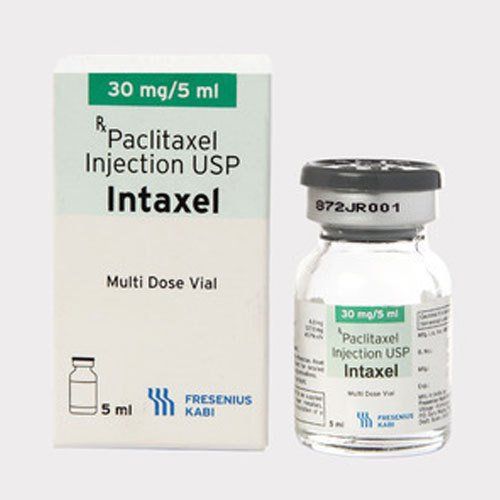This is an automatically translated article.
The article is written by doctors of Internal Oncology Department, Vinmec Times City International General Hospital
Ovarian cancer occurs when the normal cells in the ovary change into abnormal cells and grow out of control. Ovarian organs are part of the female reproductive system. A woman's eggs are located in the ovaries. Ovarian cancer most commonly occurs in women between the ages of 50 and 65, but can still occur in younger or older women. Sometimes ovarian cancer runs in families.
1. What are the symptoms of ovarian cancer?
Symptoms of ovarian cancer may include:
Stomach getting bigger or feeling bloated Stomach pain Feeling full or having trouble eating Needing to urinate often or suddenly feeling an urgent need to urinate These symptoms are common sensations and can also be caused by conditions other than ovarian cancer. But if these symptoms start and continue for more than a day or two, see your doctor.

Người bệnh xuất hiện đau dạ dày
Many women have no symptoms of ovarian cancer, but discover the tumor during random pelvic exams or imaging tests such as ultrasound for some reason. If this happens, your doctor will need to do more tests to check for ovarian cancer.
2. Is there any test for ovarian cancer?
If your doctor suspects you have ovarian cancer, he or she may order 1 or more of the following:
Ultrasound or other imaging techniques - which give a picture of the inside of the body and can show abnormal growth. Blood tests - There is no single blood test that will definitively show a woman has ovarian cancer. The tumor marker CA 125, a protein in the blood that is elevated in women with ovarian cancer, is more valuable in women who have gone through menopause. It can help find ovarian cancer in some people, but it's not clear in all women. Surgery - The only way to know for sure if a woman has ovarian cancer is to have surgery and remove the ovaries. While surgery is in progress, a sample of the lesion may be taken to see if there are any abnormal cells from the ovary (this technique is also known as an immediate intraoperative biopsy). If cancer is present, the doctor will continue to perform extensive surgery in the style of cancer such as removing the entire uterus, ovaries, and tubes connecting the ovaries to the uterus (called the fallopian tubes). If the cancer has spread to other nearby organs, your doctor may also remove these parts.

Siêu âm giúp phát hiện bất thường của buồng trứng
3. What is the stage of the cancer?
Cancer staging is how doctors see how far the cancer has spread.
For most women, surgery to remove the cancer is the first step of treatment. Further treatment will depend heavily on the stage of the cancer and other medical problems. Some women may not need further treatment after surgery, but some may need additional treatment including chemotherapy. Chemotherapy is to kill cancer cells or stop them from growing. Usually, these drugs are injected into a vein. But sometimes they can pass through a small tube into the lower part of the stomach.
4. What if one day I want to get pregnant?
If you want to have a baby, tell your doctor before treatment. Treatment for ovarian cancer often makes it impossible for a woman to become pregnant. But for some women, it's possible to have a treatment plan to get pregnant, and if necessary, consult an obstetrician.
5. What happens after treatment?
After treatment, you will be checked regularly to see if the cancer has come back. Follow-up tests usually include blood tests, exams, and imaging tests. You should also watch for the symptoms listed above, because having them could mean the cancer has returned. Let your doctor know if you have any of these symptoms.
6. What if the cancer comes back or metastasizes?
If the cancer comes back or metastasizes, more surgery or chemotherapy may be needed. You may also be treated with targeted therapy, to help prevent cancer from growing.

Liệu pháp đích trong điều trị ung thư
7. Is ovarian cancer preventable?
If someone in your family has ovarian, breast, uterine or colon cancer, talk to your doctor. There may be things you should do to avoid getting cancer.
8. What should I do?
It is important to follow all of your doctor's instructions about your visits and tests, and tell your doctor about any side effects or problems you may have during treatment.
Treatment for ovarian cancer includes many treatment options.
Always let your doctor know how you feel about treatment. Whenever you are offered treatment, ask:
What are the benefits of this treatment? Will it help me live longer? Will it reduce or prevent symptoms? What are the downsides of this treatment? Are there any other options other than this treatment? What happens if I don't get treatment?

ĐỊnh kỳ kiểm tra sức khỏe phụ khoa giúp phát hiện sớm ung thư
Ovarian cancer screening to detect the disease in time has an important meaning in successful treatment. Currently, Vinmec International General Hospital has a package of screening and early detection of gynecological cancer, helping to detect cervical cancer, uterine cancer, ovarian cancer early even when there are no symptoms.
When registering for Gynecological Cancer Screening and Early Detection Package, customers will receive:
Examination and consultation with a specialist in Obstetrics and Gynecology. Cervical cancer screening by tests such as cytology by Liqui Prep method, automated system HPV genotype PCR test, transvaginal ultrasound test of uterus and ovaries. To learn more about Ovarian cancer screening and treatment at Vinmec International Hospital, you can contact the Hospital Hotline, or register online HERE
VIEW MORE:
What are the ways to treat ovarian cancer? Ovarian cancer: Intraperitoneal or systemic chemotherapy? Laparoscopic surgery - good solution for early ovarian cancer













